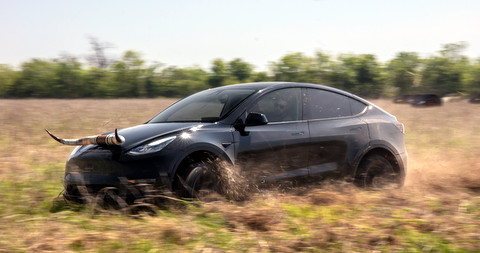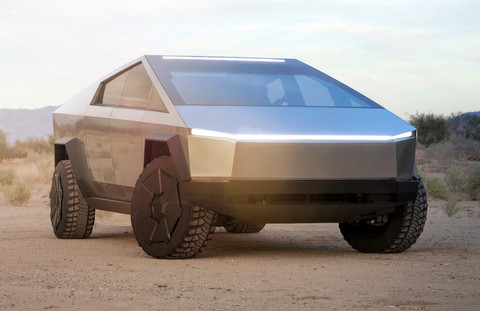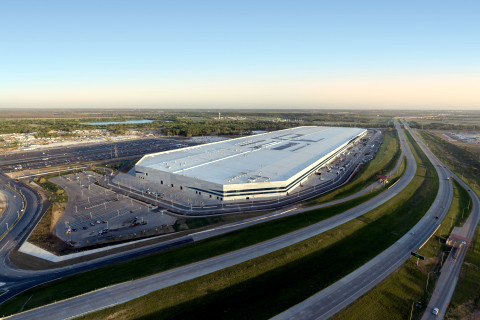Event: Tesla Dedicates Texas Plant, Promises New Products
Plant Produces Model Y Now, Cybertruck Next Year

For those keeping score, mark 2X on the Tesla game card for March-April 2022. The 2X indicates the rough doubling of production capacity by the company with the opening of new plants in Germany and Texas. As with most things Tesla, both plants began operating later than originally promised. Timing aside, both plants are delivering products (initially the Model Y crossover) to fill backlogs of orders in Europe and the U.S. They join Tesla’s current plants in Fremont, California, and Shanghai, China.
The new plants should help cement Tesla CEO Elon Musk’s plan to double production annually, as it has been able to do in recent years. Last year Tesla produced around one million vehicles. Musk said in earnings call earlier this year that 2022 would be focused on production as the two new plants came online. Tesla has a history of rough product and plant launches, going through periods Musk characterized as “production hell.”
While the volume focus disappointed some Tesla followers and resulted in a drop in the stock price at the time, the company’s trillion-dollar valuation has remained intact and some of Musk’s comments at the Cyber Rodeo (the Texas plant event held last week) should raise expectations.
Next Year
“So this year is all about scaling up, and then next year there’s going to be a massive wave of new products,” Musk was quoted as saying at the Cyber Rodeo event in Texas. He showed off an updated

version of the Cybertruck pickup, which will be produced at the Texas gigafactory. He also said the Roadster sports car and Semi Class 8 truck would be in production. In addition, he teased that other “secret” products are under development and that a “dedicated robotaxi” (a fully self-driving car) would be shown next year.
Since its introduction several years ago, competition has grown with the Rivian and GMC Hummer EV pickups already on the market and electric trucks coming from Ford, Chevrolet and Ram.

Musk has been candid that a shortfall of battery production has slowed new vehicle launches. Tesla is a highly vertically integrated automotive company compared to its competition, with batteries being produced at the Austin, Texas, plant along with the cars. It remains to be seen what kind of ongoing impact the semiconductor chip shortage and other supply chain issues might have on both current and future production. Other manufacturers have been hit harder than Tesla, which designs some of its own chips, losing millions of units of vehicles while waiting for various components.
While Musk and other Tesla execs were light on specifics at the event, it is presumed that the added capacity of the Texas factory will enable Tesla to produce and offer a more affordable version of the Model Y. Currently only Long Range ($62,990) and Performance ($67,990) models are being produced at the Fremont factory and the wait for delivery is six-nine months. It also has yet to produce a promised three-row, seven-passenger version of the Model Y, which has become its best-selling model.
Meanwhile, though Tesla is facing ever more competitors in the electric vehicle marketplace, it retains a huge portion of the market with its four current products—the Model S full-size sedan, Model X full-size SUV, Model 3 midsize sedan and Model Y.
Story by Michael Coates. Photos and videos from Tesla.
